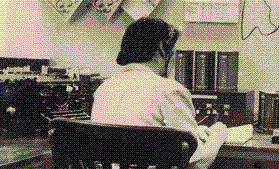Asia-Pacific Region Intelligence Center
Putin leads tributes to Yeltsin(러시아 푸틴대통령께서 옐친전대통령 서거에 대하여 존경으로 조의 표시) 본문
Putin leads tributes to Yeltsin(러시아 푸틴대통령께서 옐친전대통령 서거에 대하여 존경으로 조의 표시)
CIA bear 허관(許灌) 2007. 4. 24. 10:14|
| |||||
Mr Putin said Russia had entered a "whole new epoch" thanks to Mr Yeltsin, who bequeathed a state in which "power truly belongs to the people". Mr Yeltsin, who had a history of heart trouble, died of heart failure in a Moscow hospital. His funeral will be held in Moscow on Wednesday, which has been declared a national day of mourning. Mr Yeltsin's death was announced by the Kremlin, the seat of power which he fell out with, then later occupied as Russia's first post-Soviet head of state. "Today, at 1545 (1145 GMT) Boris Nikolayevich Yeltsin died in the Central Clinical Hospital as a result of a deteriorating cardiovascular problem," a spokeswoman said.
The last Soviet leader, Mikhail Gorbachev, paid a mixed tribute to his successor, saying Mr Yeltsin was responsible for "many great deeds for the good of the country and serious mistakes". In Washington, President George W Bush praised Mr Yeltsin as an "historic figure who served his country during a period of momentous change". Mr Putin, who succeeded Mr Yeltsin at the end of 1999, recalled Mr Yeltsin as a "courageous but genial and warm-hearted person. "He was a straightforward and bold national leader who was frank and honest to his utmost in defending his positions," he said in a televised address. "We will do everything we can to ensure that the memory of Boris Nikolayevich Yeltsin, his noble thoughts and his words: 'take care of Russia' serve as a moral and political benchmark for us." 'Champion of democracy' Mr Yeltsin came to power after being promoted by Mr Gorbachev, a man he later outmanoeuvred. The BBC's diplomatic correspondent Bridget Kendall says though he started out a loyal Communist official, Mr Yeltsin rose to fame as a flamboyant champion of Russia's new democracy.
Two years later, in another episode of high drama, he ordered Russian tanks to fire on their own parliament in October 1993, when the building was occupied by hardline political opponents. But Mr Yeltsin, who became Russia's first democratically-elected leader after Mr Gorbachev resigned in December 1991, saw his final years in office overshadowed by increasingly erratic behaviour and plummeting popularity as the economy suffered. Bouts of ill-health were accompanied by rumours of a drinking problem, exhibited most famously when Mr Yeltsin grabbed a conductor's baton in Berlin and, apparently inebriated, tried to sing along with the orchestra. Our correspondent says despite his unpredictability, Boris Yeltsin remained a reliable Western ally, even when relations grew icy over Nato's military action against Yugoslavia in 1999. He announced his retirement in the final hours of 1999, handing over to Mr Putin, the then head of the FSB, Russia's secret service. Chechen debacle Mr Yeltsin's eight years in power brought immense changes to Russia. He banned the Communist Party, introduced a new constitution which concentrated all real power in the hands of the president, and presided over Russia's troubled mass privatisation in the early 1990s. The BBC's Russian affairs analyst, Steven Eke, says under the Yeltsin leadership, Russians were given greater political and civic freedoms than they had ever enjoyed. The media, especially television, were able to criticise the authorities, even the president, in a way they would no longer consider possible, he says. But history may judge Mr Yeltsin's actions towards the rebellious region of Chechnya much more harshly, he adds. In 1994, Mr Yeltsin launched a disastrous large-scale military intervention in the breakaway republic, pledging to crush resistance in days. Instead, a bloody war of attrition ensued, which left tens of thousands of people dead, and the north Caucasus permanently destabilised | |||||
'대북정책' 카테고리의 다른 글
| 부시 미국 대통령, 옐친 추모 "미국과 관계개선 기여" (0) | 2007.04.24 |
|---|---|
| Blair tribute to Yeltsin's role (러시아 역사에 있어 민주주의와 경제개혁을 도입하고 개혁을 옹호) (0) | 2007.04.24 |
| 각국 옐친 러시아 전대통령 추모 "탁월한 역사적 인물" "민주주의 선구자" "러시아 개혁의 주역" (0) | 2007.04.24 |
| 옐친의 知人들, 민주주의 영웅으로 평가 (0) | 2007.04.24 |
| 시라크 프랑스 대통령 "옐친은 따뜻한 친구로 기억될 것" (0) | 2007.04.24 |




